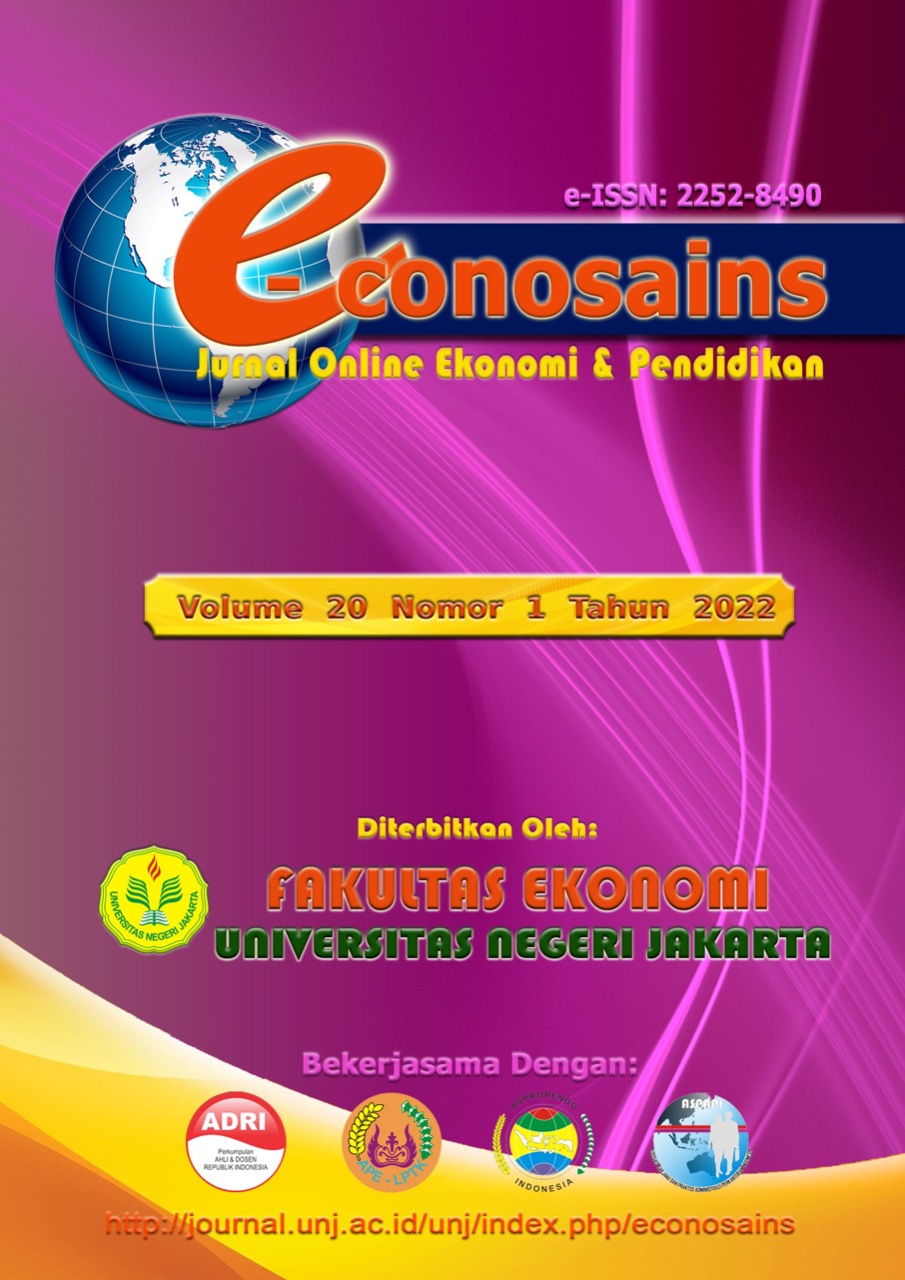THE FDI, EXCHANGE RATE, AND EXPORT NEXUS AUTOMOTIVE INDUSTRY IN INDONESIA: A GRANGER CAUSALITY APPROACH
Keywords:
FDI, Exchange Rate, Exports, VAR, Automotive Industry, International TradeAbstract
This study aims to analyze FDI, Exchange Rate, and Export in the Automotive Industry in Indonesia. Data used from 2006 -2019 with the VAR method. The results obtained in this study are the three variables that do not have a cointegration relationship so the estimation uses the VAR model. Furthermore, the Granger Causality test results show that there is a one-way relationship for each variable. The causal relationship, namely FDI affects the exchange rate, exports affect the exchange rate. VAR test results show that the entry of FDI and the exchange rate does not significantly affect exports. Furthermore, FDI significantly affects the exchange rate, this is because of the integrated trading model with low Exchange Rate volatility. For this reason, it is very important to note the direction of capital inflows, which are used to finance domestic expenditure or finance accumulated capital in the traded or non-traded sectors. If capital inflows are used to finance domestic consumption, it must increase purchasing power and demand for goods traded. The study provides a descriptive picture for the Islamic pension fund provider and government to set a product based on the Muslim attitude and expectation. As far as we are concerned, there is only a small number of research on analyzing FDI, Exchange Rate, and Export but in this research specific on Automotive Industry evidence from Indonesia. This article can give contribution to policy.
Downloads
Published
How to Cite
Issue
Section
License

Econosains is licensed under a Creative Commons Attribution-NonCommercial-ShareAlike 4.0 International License.









